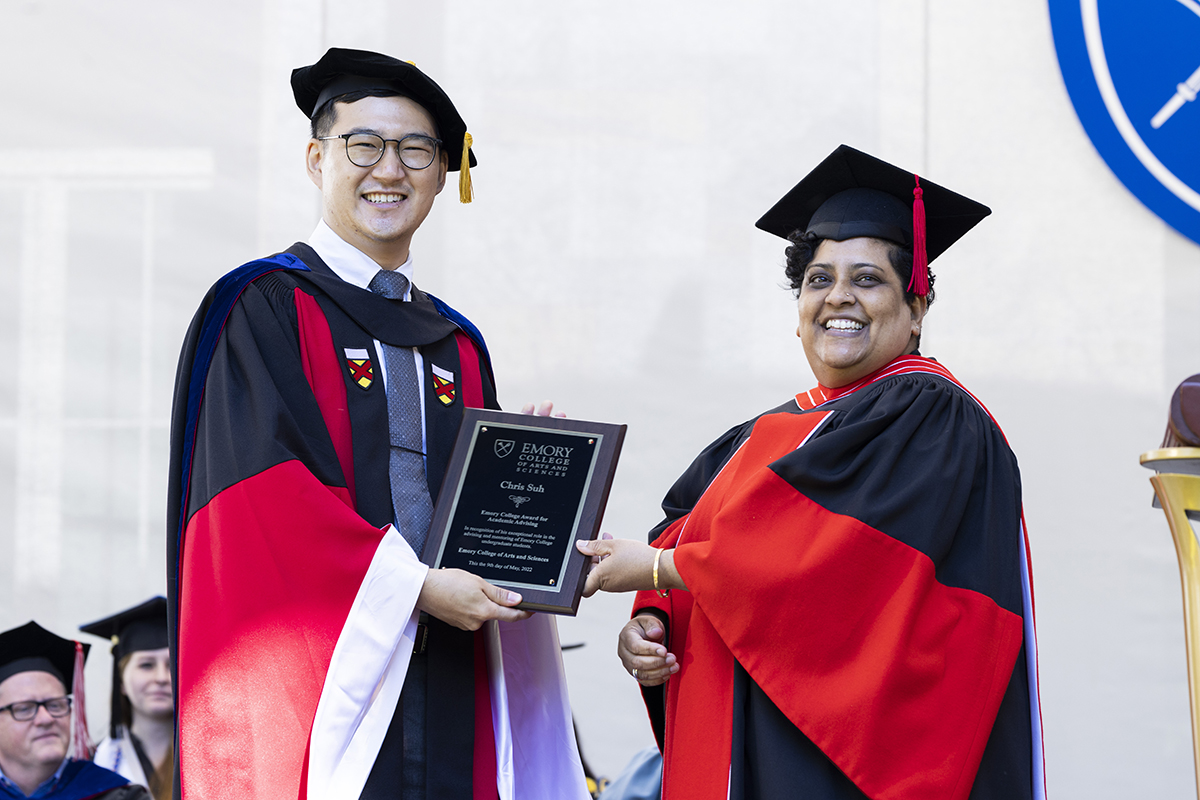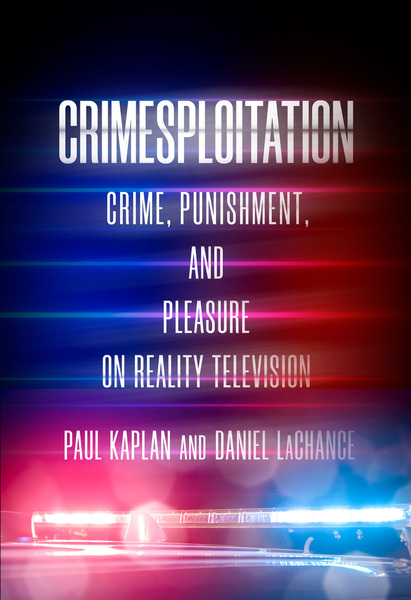Dr. Carol Anderson, Charles Howard Candler Professor and Chair of African-American Studies, was recently interviewed by journalists from TIME and Slate in the wake of the Buffalo massacre earlier this year. Carried out at a local grocery store, the racially-motivated shooting left 10 people dead. Anderson’s contributions in these interviews draw especially from insights in her most recent book, The Second: Race and Guns in a Fatally Unequal America (Bloomsbury, 2021). Read each of the conversations here: “What the Buffalo Shooting Says About Black America’s Fraught Relationship With Guns” (TIME) and “The Dangerous Idea That Links the Buffalo Shooting and the Insurrection” (Slate).
Category / Faculty
Lipstadt on PBS: ‘Racism and Antisemitism “Firmly Intertwined”‘
Dr. Deborah E. Lipstadt, Dorot Professor of Modern Jewish History and Holocaust Studies and Associated Faculty in the History Department, was recently interviewed about the links between racism and antisemitism on the PBS program “Amanpour & Co.” Lipstadt spoke on the heels of her installation as the State Department’s special envoy to combat antisemitism, an ambassador-level position. Read the full transcript and watch the interview here: “Amb. Lipstadt: Racism and Antisemitism “Firmly Intertwined.”
Anderson on NPR: How Politicians Pick Their Voters
Dr. Carol Anderson, Charles Howard Candler Professor and Chair of African-American Studies, was recently interviewed on the NPR Politics Podcast. In an installment of the podcast’s book club, host Danielle Kurtzleben talked to Anderson about her work One Person, No Vote: How Voter Suppression Is Destroying Our Democracy (Bloomsbury, 2018). Their conversation centered on how “redistricting and state voter restrictions work to shape who really has a say in elections.” Listen to the interview here: “Here’s How Politicians Pick Their Voters.”
Vice President Harris Ceremonially Swears in Ambassador Deborah E. Lipstadt
Dr. Deborah E. Lipstadt, Dorot Professor of Modern Jewish History and Holocaust Studies and Associated Faculty in the History Department, was recently sworn in as ambassador by Vice President Kamala Harris. Lipstadt will serve as the State Department’s special envoy to combat antisemitism. Read more about Lipstadt’s new post via the Emory News Center (“Emory historian Deborah Lipstadt confirmed as U.S. special envoy to monitor and combat antisemitism“) and Yahoo News (“Kamala Harris swears in envoy to combat antisemitism“). Also read below a quote from Lipstadt about the rising tide of hatred and racism across the globe, which she gave in an interview with NPR after the anti-black mass shooting in Buffalo, NY.
“The rising threat of anti-Semitism, the rising threat of racism, the rising degree of conspiratorial thinking, it’s not just a threat to the welfare of specific groups in this country – we saw it against the African American community in a tragic, tragic way this past week – but it’s a national security threat. It’s a threat to our communal welfare. And the need is immediate. And the need is great.”
Emory Honors Lesser, Payne, and Suh for Teaching and Advising

Multiple History Department faculty were recognized at the conclusion of the spring 2022 semester with honors and awards from the university. Dr. Jeffrey Lesser, Samuel Candler Dobbs Professor and Director of the Halle Institute for Global Learning, was awarded the Eleanor Main Graduate Student Mentor Award. Dr. Matthew J. Payne, Associate Professor, received the Emory Williams Distinguished Undergraduate Teaching Award. Dr. Chris Suh, Assistant Professor, was given the Emory College Award for Academic Advising. Read about other honors and awards conferred at the spring 2022 commencement: “Faculty and staff honored for excellence in teaching, mentoring and more.”
Menashe Awarded the Fritz Stern Dissertation Prize by the German Historical Institute
Incoming faculty member Dr. Tamar Menashe, a historian of late medieval and early modern Jewish and European history, was recently awarded the Fritz Stern Dissertation Prize by the German Historical Institute. Menashe’s dissertation is titled “The Imperial Supreme Court and Jews in Cross-Confessional Legal Cultures in Germany, 1495-1690.” A graduate of Columbia University, Menashe will join Emory’s Department of History and the Tam Institute for Jewish Studies this fall as a Postdoctoral Research Fellow. She will begin her appointment as the Jay and Leslie Cohen Assistant Professor of History and Jewish Studies in Fall 2023.
Ph.D. Graduate Camille Goldmon Featured by Emory News
Dr. Camille Goldmon graduated with her Ph.D. in history in the spring of 2022. The Emory News Center celebrated Goldmon’s graduate career with a feature story titled “An unexpected knack for mentoring forges connections on campus and beyond.” The piece spans from Goldmon’s initial decision to apply to Laney Graduate School through her stellar impact at Emory and post-graduate plans: a two-year postdoctoral fellowship at Princeton, followed by a tenure-track position at the University of Oregon. Dr. Carol Anderson, Charles Howard Candler Professor and Chair of African-American Studies, supervised Goldmon’s dissertation, “On the Right Side of Radicalism: African American Farmers, Tuskegee Institute, and Agrarian Radicalism in the Alabama Black Belt, 1881–1940.” Read the full Emory News Center piece here along with an excerpt quoting Anderson below.
“Camille Goldmon is, like a riff on the Maya Angelou poem, Phenom, Phenom, Phenomenal Scholar,” says Carol Anderson, Charles Howard Candler Professor and chair of African American Studies and Goldmon’s advisor. “Her research is innovative and forces us to rethink radicalism. Her teaching is engaging, powerful and transformative. Her mentoring of students in the Mellon Mays Undergraduate Fellowship program is outstanding. Her work on uncovering Atlanta’s past for the Just Futures Mellon grant is mind-blowing and narrative disrupting.”
“If this sounds like a string of superlatives, it’s simply because that’s Camille,” Anderson adds. “She is superlative.”
LaChance Co-Organizes Upcoming Conference ‘Unsettling Law’ at Emory School of Law
Dr. Daniel LaChance, Winship Distinguished Research Professor and Associate Professor of History, has co-organized and will present at a conference on Emory’s campus this week. Titled “Unsettling Law,” the conference is the 24th annual gathering of the Association for the Study of Law, Culture, and the Humanities (LCH). LaChance is currently treasurer of the organization. The Emory University School of Law will host the June 16-17 gathering, which will include mostly in-personal conversations with virtual attendance options available for some events.
LaChance will chair a panel titled “Rethinking Retribution” and present a paper – “Captain Vere’s Electric Chair: The Cultural Politics of State Killing in the Late 19th Century United States” – on a panel centered on “Affect, Attachment and Capital Punishment.” In addition to panels and in an effort to foster the next generation of scholars in law and the humanities, the LCH is holding an all-day workshop for 15 Ph.D. students on Wednesday, June 15, and partially subsidizing their travel and accommodations. Read the overview of the conference below and find out more information here.
Law often resides in the pull between what is settled and what is not. Precedent guides us until it does not. Law’s stability is in constant conversation with its own necessary responsiveness as well as with what troubles it from outside of legal institutions. Disobediences, whether civil or not, have the power to unsettle what is taken to be settled. And forces like climate change pose challenges to settled law by destabilizing what may make obedience and order possible at all. Law continually expands the range of persons it recognizes, for better or worse, while it claims across all changes that it serves the interests of all. Borders exclude but remain permeable, and we argue about what is owed to others regardless of their citizenship status. States claim sovereignty and face refusals from other sovereignties within their borders. Even settler colonialism is a process rather than an outcome, so what is settled and what remains open to different futures may be contested. How do and should we imagine law in these unsettled times? What creative forces might we bring to bear in these moments between past and future, whether for unsettling what ought to change or stabilizing what is endangered? How might different disciplines, methodologies, arts, literatures, and technologies represent, reinforce, or resist unsettling law? We invite proposals taking up that question from a variety of humanities-oriented perspectives.
History Department Welcomes New Faculty: Dr. Laura Nenzi and Dr. Tamar Menashe
The History Department is excited to announce two new faculty hires. Dr. Laura Nenzi, a social historian of Early Modern Japan, will be joining the Department of History as Acting Full Professor in Fall 2022. Dr. Tamar Menashe, a historian of late medieval and early modern Jewish and European history, will join the Department of History and the Tam Institute for Jewish Studies as a Postdoctoral Research Fellow in History and Jewish Studies in Fall 2022. Menashe will begin her appointment as the Jay and Leslie Cohen Assistant Professor of History and Jewish Studies in Fall 2023. Welcome to you both!
LaChance Publishes ‘Crimesploitation: Crime, Punishment, and Pleasure on Reality Television’ with Stanford UP
Dr. Daniel LaChance, Associate Professor of History and Winship Distinguished Research Professor in History, recently published a new book with co-author Dr. Paul Kaplan, Professor of Criminal Justice in the School of Public Affairs at San Diego State University. Titled Crimesploitation: Crime, Punishment, and Pleasure on Reality Television and published by Stanford University Press, the monograph investigates the enduring appeal of ‘true crime’ media in American popular culture. Dr. Michelle Brown, Professor at the University of Tennessee, offered the following appraisal of Crimesploitation: “Kaplan and LaChance move us toward a critical reckoning with the exploitative forms of (un)freedom that media’s spectacle of crime and punishment have conjured. A powerful dose of thoughtful accountability, this volume points the way to getting truly ‘real’ about—and intervening in—the suffering that a culture of punishment has produced.” Read more about the monograph below as well as on the Stanford UP website.
“‘Due to the graphic nature of this program, viewer discretion is advised.’ Most of us have encountered this warning while watching television at some point. It is typically attached to a brand of reality crime TV that Paul Kaplan and Daniel LaChance call “crimesploitation”: spectacles designed to entertain mass audiences by exhibiting “real” criminal behavior and its consequences. This book examines their enduring popularity in American culture. Analyzing the structure and content of several popular crimesploitation shows, including Cops, Dog: The Bounty Hunter, and To Catch a Predator, as well as newer examples like Making a Murderer and Don’t F**K with Cats, Kaplan and LaChance highlight the troubling nature of the genre: though it presents itself as ethical and righteous, its entertainment value hinges upon suffering. Viewers can imagine themselves as deviant and ungovernable like the criminals in the show, thereby escaping a law-abiding lifestyle. Alternatively, they can identify with law enforcement officials, exercising violence, control, and “justice” on criminal others. Crimesploitation offers a sobering look at the depictions of criminals, policing, and punishment in modern America.”
